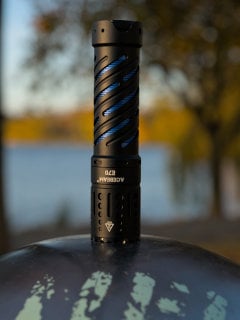Yes they are terrible and enthusiasts should use rechargeables. But for others, there are sane reasons to want to have a few alkaleaks on long term standby. Is the fridge better for this than room temperature? What about the freezer? Related: Countycomm’s 1C and 1D lights are on sale again. That is what prompted this question.
Moisture could be a problem, found this manufacturer faq:
Energizer Non-Rechargeable Batteries: Frequently Asked Questions Is it a good idea to store batteries in a refrigerator or freezer? No, storage in a refrigerator or freezer is not required or recommended for batteries produced today. Cold temperature storage can in fact harm batteries if condensation results in corroded contacts or label or seal damage due to extreme temperature storage
Thanks both. Hmm, fridge air is around 40F so not extreme cold, and it is usually dry. I wonder if there is any way then to prevent leakage. It seems like a dirty secret of the industry. All they’ll tell you is that they will replace any gear that their leaky batteries messed up. Not that helpful really.
Personally, Ive never had a battery made by a reputable brand (I.E, any one that you’ve heard of before) as long as I make sure to not leave them unused in a device for years.
Had Duraleaks kill two flashlights within weeks of each other. Batteries were less than a year old.
Fuck Duracell, and all alkalines.
Edit: I take that back. Thank you Duracell for motivating me to get off my lazy arse and read up on rechargeable tech today. Becuase of those bad experiences, I now own only reargeables (mostly nimh), a few 18650, and Lithium primaries.
- they leak all the time, I have had plenty of them leak in and out of devices. 2) they have a use-by date written on the cell, usually 10 years after manufacture. So storing them several years is reasonable to expect. But they go bad much faster. Bah.
While the fridge itself may not be humid, once you take it out, you will be someplace that likely is humid. And that’s where the fun begins… and by “fun” I mean “condensation”.
I don’t know if it affects all battery types, but when I’m doing astrophotography, I’ve been told to keep the spare batteries in an inside pocket as the cold stops them from lasting as long.
Cold will slow down the chemical reaction of the electrolyte. Which is also where the idea to refrigerate comes from.
Growing up we always kept batteries in the fridge.
Then a neighbor kid did an actual science experiment on it for school, and determined that refrigerated batteries die FASTER.
I don’t remember the details but it was dramatic, even a few days at colder temps significantly reduced the life of alkalines.

